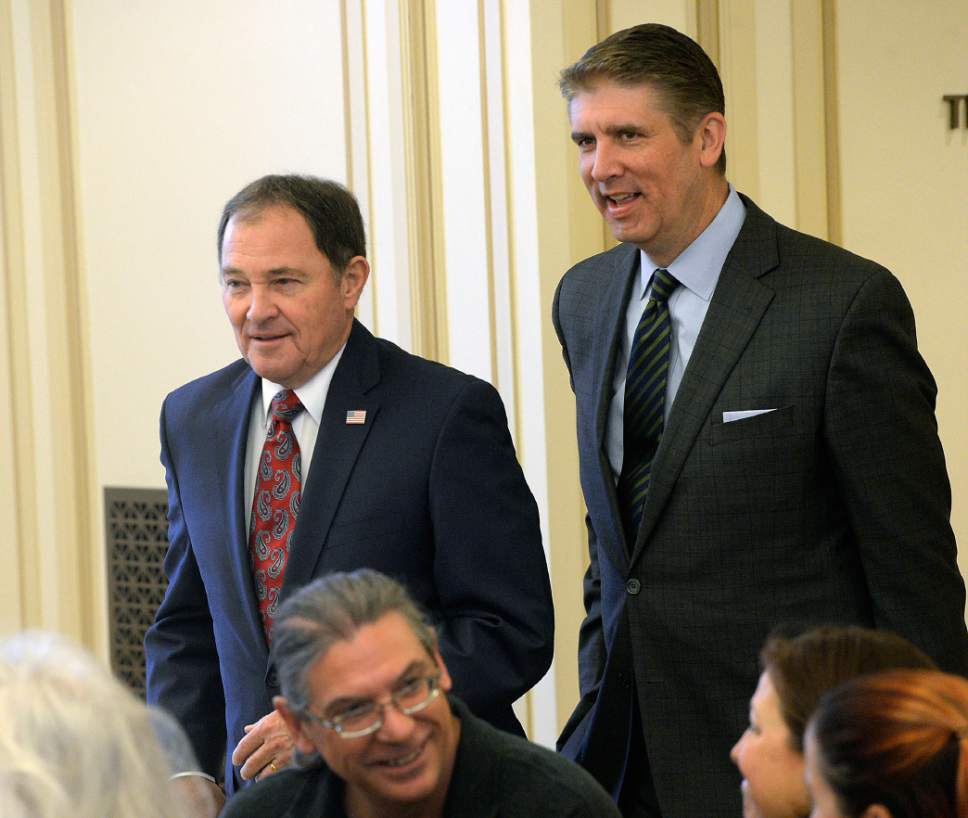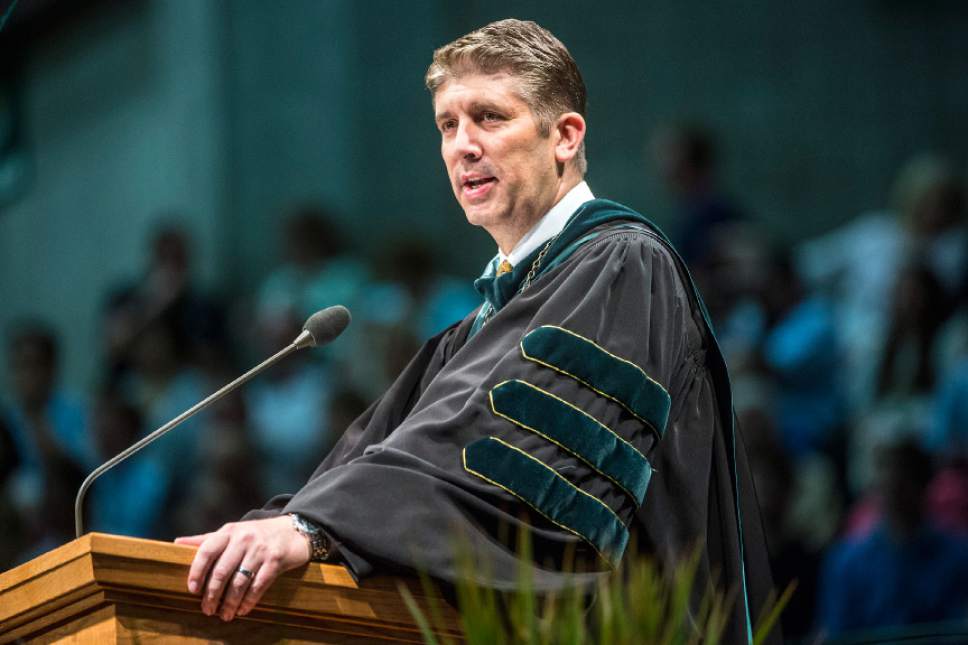This is an archived article that was published on sltrib.com in 2017, and information in the article may be outdated. It is provided only for personal research purposes and may not be reprinted.
In a hypothetical primary among five Republicans whose names have been floated to replace Rep. Jason Chaffetz, there's an unexpected winner: Utah Valley University President Matthew Holland.
Holland also has the highest approval from 3rd Congressional District Republicans among other prominent members of the GOP, with an average rating of 77 out of 100. That outpaces the favorability of Utah Gov. Gary Herbert at 72, Chaffetz at 71 and President Donald Trump at 64.
"His numbers are surprising considering he's never held elected office," said Scott Riding, managing partner at Y2 Analytics, which ran the survey released Friday.
And there's another thing: Holland hasn't expressed any interest in running for Congress.
The other four candidates included in the mock primary — former independent presidential candidate Evan McMullin, Utah House Speaker Greg Hughes, state Sen. Deidre Henderson and former Utah Republican Party Chairman Thomas Wright — have all hinted at joining the race. And yet they all polled behind Holland, who received 38 percent of the vote.
Riding suggests that Holland is favored for his "legacy name in Utah," as well as his work in leading UVU. Holland, the son of Mormon apostle Jeffrey Holland, could not be reached for comment Friday.
The mad scramble among candidates started last week when Chaffetz announced he would not seek re-election in 2018 — and may step down before his term is up. The state is now preparing for the possibility of a special election.
Y2 Analytics is not working for any of the potential candidates but ran the survey to see "who's got an early edge," Riding said. "We don't expect these numbers to hold as the campaign unfolds."
The closest runner-up to Holland was McMullin with 27 percent. Riding called him "the most divisive of the candidates."
"There's a large group of people that seem upset at him for his independent run last November," he said. "Some of them see him as having been disloyal [by not running as a Republican]."
Overall, McMullin had an average 49 out of 100 favorability rating in the survey, though he had the highest name recognition. Some 28 percent of the respondents — all 3rd District Republicans — had voted for him in the election (with 58 percent voting for Trump).
"My takeaway there is that [McMullin] needs a crowded field to stand out," Riding said. "If this comes down to a candidate or two, I worry that he's hit his ceiling."
Take Holland out of a potential matchup, though, and McMullin beats Hughes, Henderson, Wright and Provo Mayor John Curtis.
Curtis, who is finishing his eighth year as mayor and will not seek re-election, has previously told The Salt Lake Tribune that Chaffetz's planned exit "definitely gives me pause" as he weighs a bid.
He received an average 62 out of 100 in favorability from survey respondents. Riding suggests that he has "an edge among early contenders, if he chooses to run."
Those who were least known — meaning more than 80 percent of Republicans in the 3rd District did not recognize their names — were some of the state lawmakers considering a run for Chaffetz's seat: Henderson, of Spanish Fork, and Rep. Dan McCay, R-Riverton.
But though she has poor recognition overall, Henderson is well liked by her constituents, earning an average 68 out of 100 in favorability scores in her district. Riding says that means she has "room to grow" as a candidate if she gets some exposure.
Both Hughes and state Sen. Curt Bramble polled within the top four for name recognition, though that doesn't necessarily mean they are well-liked. Hughes has been associated with controversies involving the Utah Transit Authority and Bramble polls lower than Henderson among his own constituents.
Candidate Damian Kidd, an attorney from American Fork, ranked the lowest in both favorability and name recognition.
The poll among 445 likely Republican primary voters was conducted April 22-27. It has a margin of error of 4.6 percentage points.
"Obviously, it's early," Riding said. "If this is a special election — if Representative Chaffetz steps down early — we don't know the process. This is just a way to get a sense."
Twitter: @CourtneyLTanner





